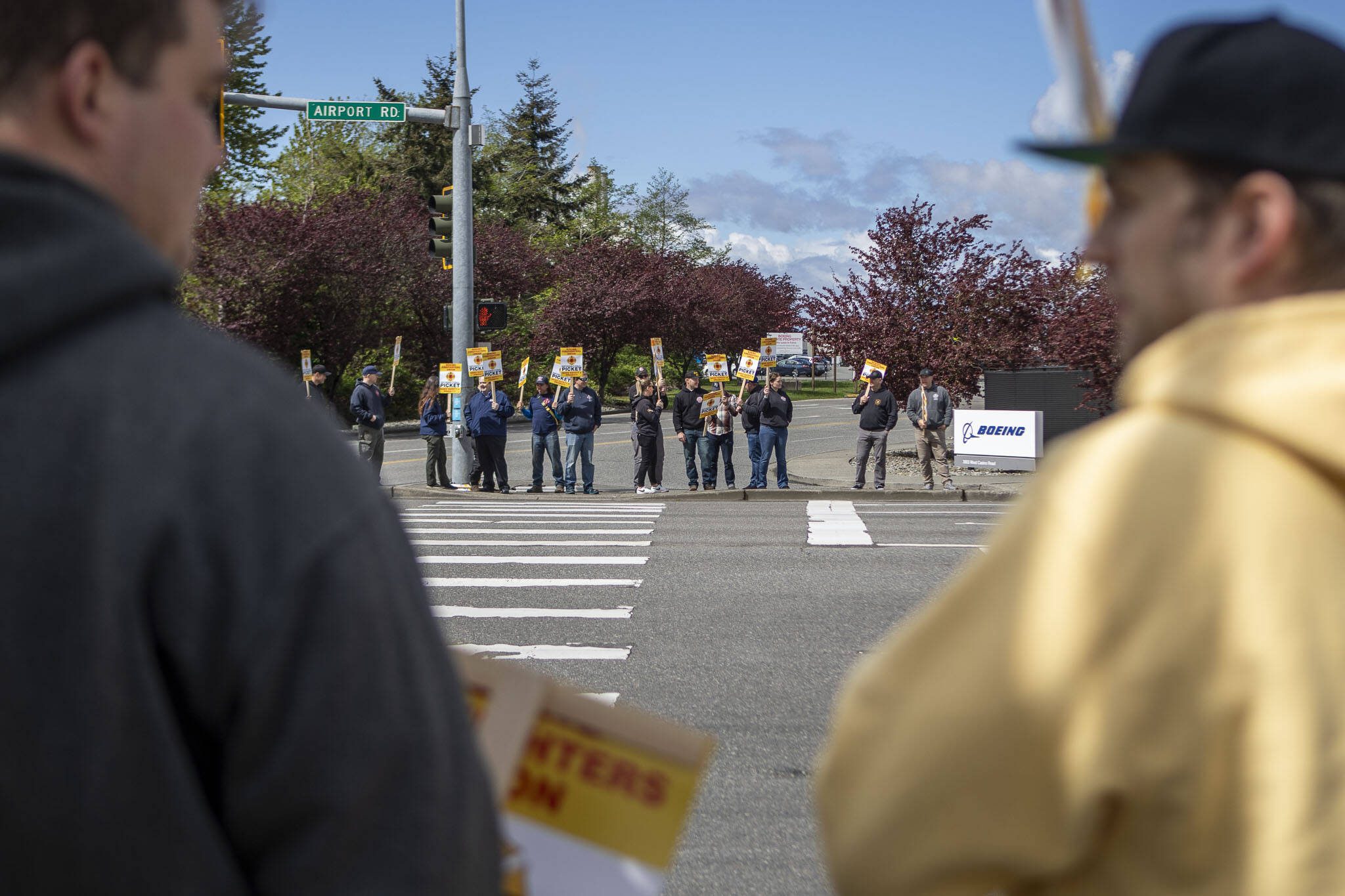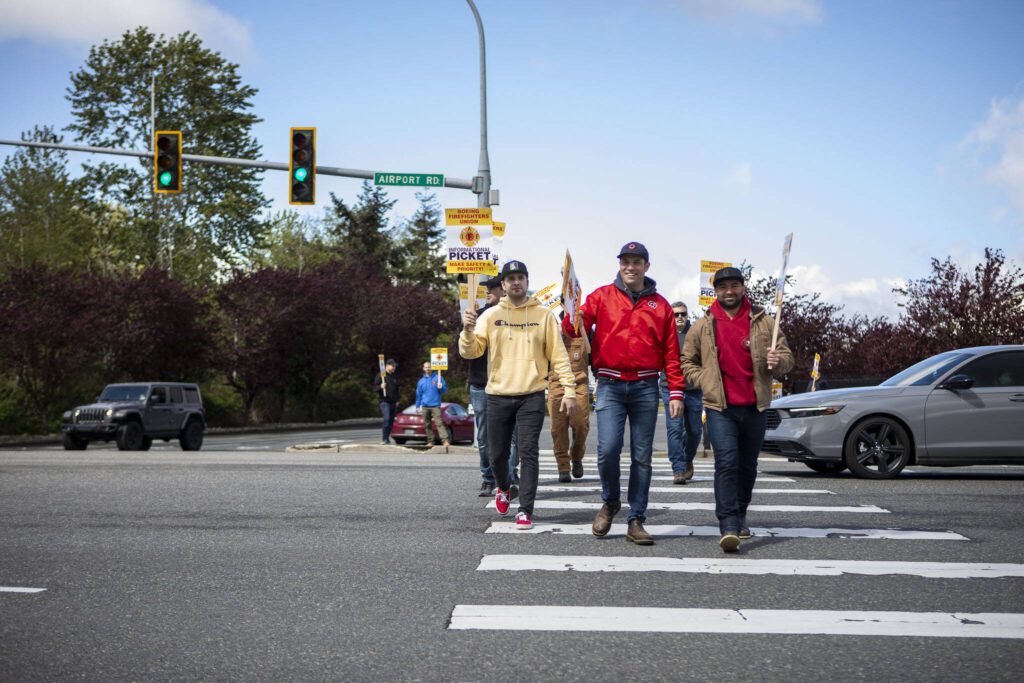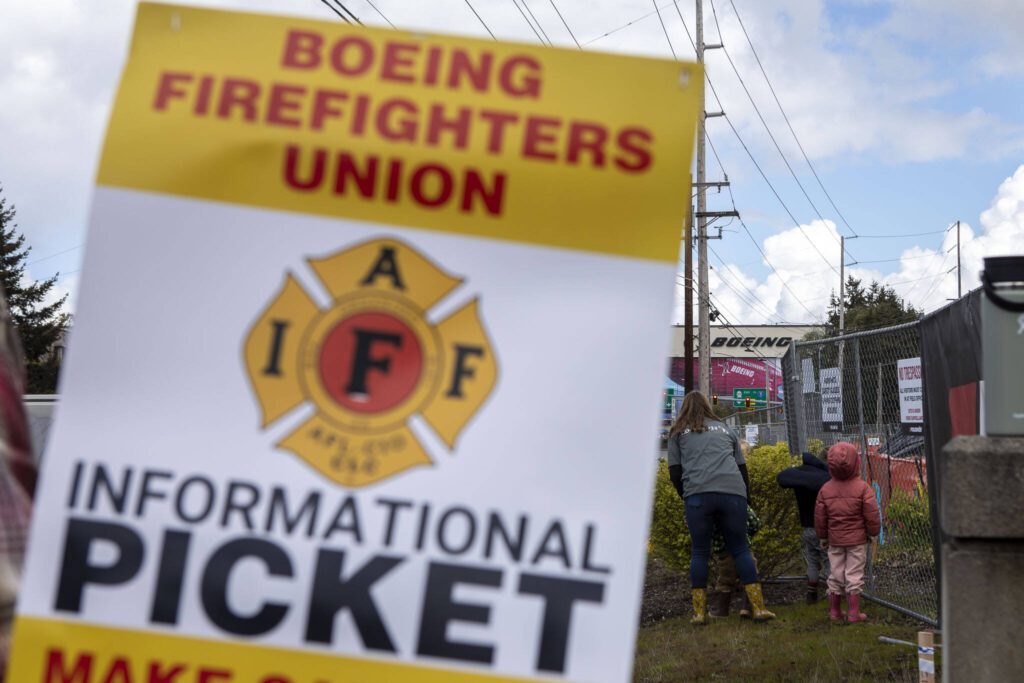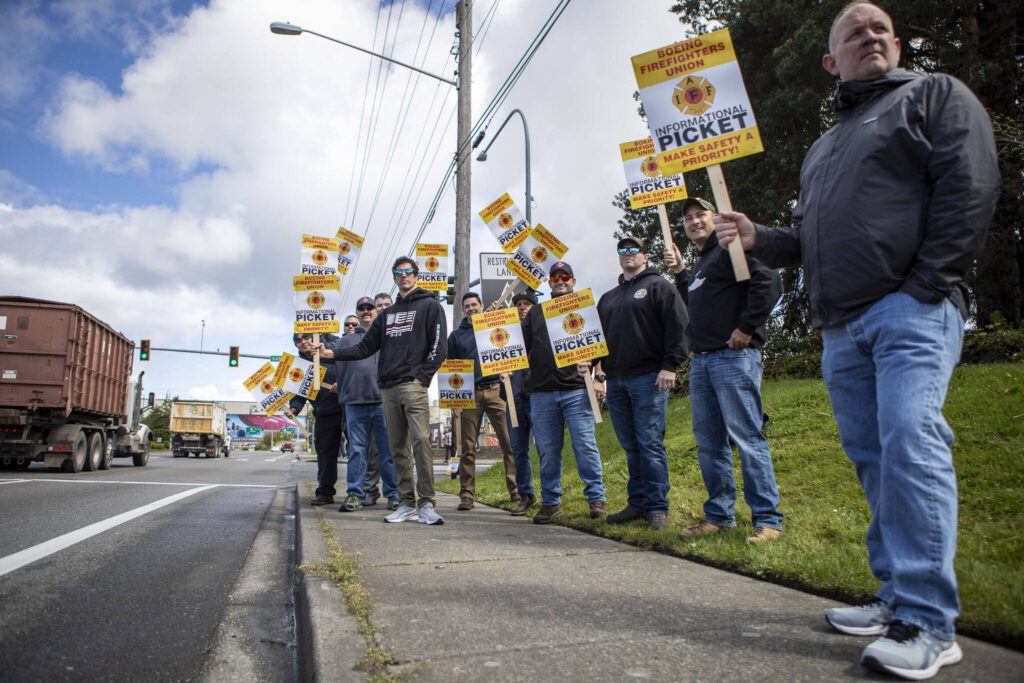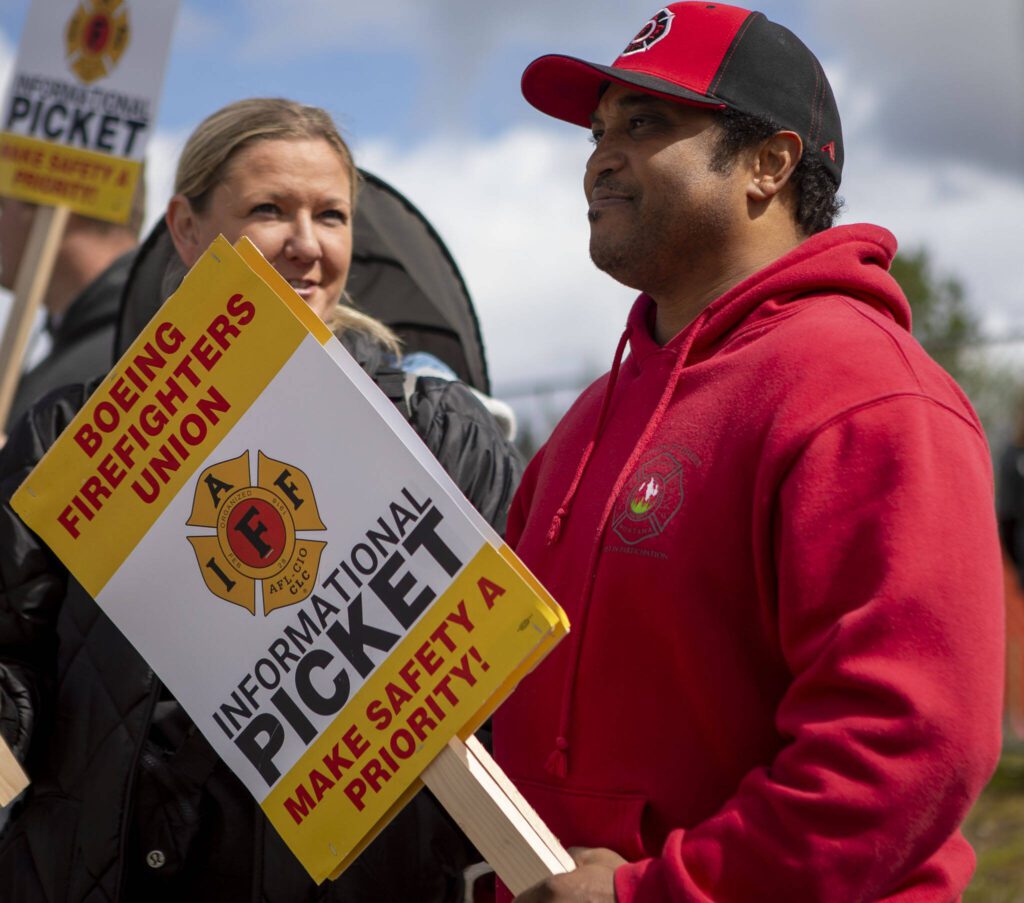EVERETT —The sprawling Boeing aircraft assembly plant at Paine Field is like a small city. The plant employing 35,000 workers has its own security force, medical facilities and firefighters.
Now, 125 Boeing firefighters — members of the International Association of Fire Fighters Local I-66 — are seeking a deal from the aerospace giant that includes competitive pay and better staffing.
Pay for Boeing fire fighters is on average 20% less compared to regional fire departments and fire districts, union officials said.
Local I-66, which represents firefighters at Boeing facilities in Everett, Auburn, Renton, Seattle and Moses Lake, held an informational picket Monday outside an entrance to the Everett factory.
About 70 picketers carrying signs that read “Firefighters Union — Informational Picket — Make Safety a Priority” fanned out along the four corners of Airport Road and Kasch Park Road. About 40 firefighters work at the Everett plant, a union firefighter said.
Members of Boeing’s white collar union and the Machinists union also turned out to support firefighters.
“We’re trying to get Boeing to see the big picture here that we’re unified across the board,” said Boeing firefighter Tony Coleman, waving a sign.
Picketers drew honks, claps and shouts of approval from passing drivers.
Local I-66 is currently in contract negotiations with Boeing, but has rejected the company’s two previous offers. More than 80% of members voted no, union officials said.
Another 100 firefighters and their supporters reportedly picketed Monday outside Boeing’s Renton plant, union officials said.
Both sides returned to the bargaining table Monday, but a deadline looms, said Dean Shelton, vice-president of the Washington State Council of Fire Fighters.
Because the last two rounds have been unsuccessful, Shelton said, the clock is ticking on a 60-day cooling off period that expires Friday.
After the deadline and a 10-day wait period passes, Boeing firefighters could strike as soon as May 13 if no agreement is reached.
Negotiations could continue this week “if it feels like they’re going in the right direction,” Shelton said.
“Our hope is that we’ll get to a deal,” he added.
In a statement Monday, the company said: “We are disappointed the union rejected our final offer that would increase our firefighters’ pay while continuing to provide outstanding healthcare coverage and one of the best 401(k) plans in the nation.”
“Today we are engaged in good faith negotiations with the union in the hopes that a deal can still be reached,” the statement continued. “In the event a deal isn’t reached, we have a robust contingency plan which will ensure uninterrupted firefighting support at our Puget Sound sites and allow us to safely continue all business operations as normal.”
Boeing’s specialized firefighters are on hand every time a Boeing-built aircraft is fueled or takes off on a test or delivery flight. They also provide emergency medical services and conduct regular safety inspections at Boeing facilities.
“Firefighters are a big part of the safety here,” Coleman said. “We handle anything structurally related. If there’s anything EMS-related, we take care of that. We take care of the airfield. If Boeing firefighters do not receive comparable wage and benefit packages like those firefighters who serve outside the (factory) gates — it’s just detrimental to public safety.”
Union officials noted three sticking points:
• Better pay could help reduce the high turnover rate for Boeing firefighters. “It’s a revolving door because the wages and benefits packages don’t measure up,” Coleman said.
• Boeing has proposed a plan in which it would take firefighters 19 years to reach the top end of their pay scale. By comparison, firefighters at regional agencies typically reach the top end after three to five years.
• Union officials say staffing at Boeing fire stations is significantly below standards established by the National Institute of Standards and Technology. Retaining firefighters at Boeing’s current pay rates is a challenge, Shelton said. “Because of the better wages and benefit packages offered by neighboring agencies, they’re leaving,” he said.
Boeing said its compensation package and staffing levels are in line with those for industrial fire departments.
The company should pay firefighters what they’re worth, Coleman said, especially now that Boeing is facing intense scrutiny by government and industry officials for its safety lapses.
Janice Podsada: 425-339-3097; jpodsada@heraldnet.com;
Talk to us
> Give us your news tips.
> Send us a letter to the editor.
> More Herald contact information.
